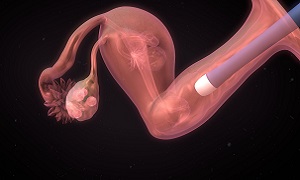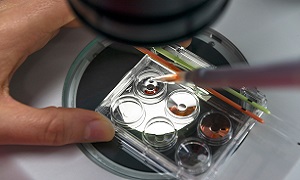Best Doctors in India for Egg Freezing
Best Hospitals in India for Egg Freezing
- City: Mumbai, India
Hospital Highlights:
- Fortis Hiranandani hospital was established in 2007.
- The hospital is an advanced tertiary care, multi-specialty hospital equipped with 149 beds.
- The hospital is equipped with a super ICU to provide emergency medical care to critically ill patients.
- The hospital is NABH accredited.
- The critical care facility in the hospital is augmented with the state-of-the-art facilities that facilitate speedier diagnosis and efficient monitoring.
- The hospital provides specialty medical services in cardiology, orthopedic science, pediatric science, neurology, diabetic care, urology, nephrology, ENT, obstetrics, gynecology, cosmetic surgery, bariatric surgery, neuro and spine care.
- City: Gurugram, India
Hospital Highlights:
- W Pratiksha Hospital, Gurugram, is one of the best hospitals in the NCR region. It is also a top hospital in India for IVF. Since its inception, the hospital has performed over 5500 successful IVFs. The hospital also specializes in gynecology.
- With over 20 years of experience in providing quality healthcare, the hospital is known as one of the most trusted and valued health providers in India.
- Equipped with world-class medical facilities and advanced technology, the hospital’s doctors and clinicians also have a track record of delivering excellent results. The hospital is also known for focusing on preventive well-being as much as on curative treatment.
- The hospital has earned the trust of its patients, by providing the best available treatments at affordable costs.
- City: Gurugram, India
Hospital Highlights:
- Paras hospital was established in 2006 and is the 250 bedded flagship hospital of Paras Healthcare.
- The is supported by a team of doctors of international and national repute.
- The hospital is NABH accredited and also the first hospital in the region to have a NABL accredited laboratory.
- The hospital provides specialty medical services in around 55 departments including Neurosciences, Joint Replacement, Mother & Child Care, Minimal Invasive Surgery, Gynecology and Obstetrics, Ophthalmology, Dermatology, Endocrinology, Rheumatology, Cosmetic and Plastic surgery.
- The hospital is equipped with state-of-the-art technologies.
- City: Kolkata, India
Hospital Highlights:
- Fortis Hospital, Anandapur, Kolkata is a world-class super-speciality equipped with the latest technologies in the medical world.
- The hospital is NABH accredited.
- This state-of-the-art facility specializes in cardiology and cardiac surgery, urology, nephrology, neurosciences, orthopaedics, digestive care, emergency care and critical care.
- The hospital, governed by integrated Building Management System (IBMS), has a pneumatic chute system, for quick vertical and horizontal transportation between floors, facilitating speedy transfer of patient specimens, documents, reports, and medicines to the concerned departments.
- The hospital also has a nephrology department with over 28 advanced dialysis units.
- City: Mumbai, India
Hospital Highlights:
- SL Raheja hospital is a 140-bed multi-specialty tertiary care hospital that is being managed by Fortis Healthcare Ltd.
- The hospital is a benchmark in healthcare and medical facilities in the neighborhood of Mahim & the western suburbs.
- L.Raheja Hospital, Mahim has one of the most effective ICU and Casualty care services.
- The hospital provides specialty medical services in Cardiology, Oncology, Neurology, Orthopedics, Mother & Child Care, and in Diabetes.
- City: Mumbai, India
Hospital Highlights:
- Wockhardt Hospitals were established in the year 1973, originally called First Hospitals and Heart Institute.
- Wockhardt Hospitals are super specialty health care networks in India, nurtured by Wockhardt Ltd, India’s 5th largest Pharmaceutical and Healthcare company.
- Wockhardt Hospitals is associated with Partners Harvard Medical International, an international arm of Harvard Medical School, USA.
- Wockhardt Heart Hospital performed India’s first endoscopic heart surgery.
- The hospital has a state-of-the-art infrastructure equipped with the latest technologies and modern equipment.
- It has special Centers of Excellence dedicated to the major specialties to provide hassle-free and high-quality clinical care.
- City: Gurugram, India
Hospital Highlights:
- The CK Birla Hospital in Gurugram is a NABH-accredited multi-specialty hospital.
- The hospital strives to increase the quality of healthcare by focusing on UK NHS nurse and midwife training requirements. Policies and practices derived from the National Institute for Health and Treatment Excellence (NICE) recommendations in the United Kingdom ensuring that a strong focus on safety, high-quality clinical care, and sanitation is maintained.
- The hospital’s cutting-edge technology and facilities allow for real-time communication and seamless collaboration among caregivers, ensuring accuracy and the best possible results. Those with foreign experience and accreditations make up part of the hospital’s team of clinicians.
- City: Ahmedabad
Hospital Highlights:
- As a member of the Apollo Hospitals Group, Apollo Hospitals International Limited, Ahmedabad is one of the most popular and sought-after medical facilities in Gujarat.
- Through its 6 Centres of Excellence and various affiliated branches, which cover all specialties and subspecialties, the hospital provides the most advanced clinical services.
- Since its inception in 2003, the hospital has been providing each patient with the most up-to-date medical equipment and state-of-the-art technology.
- With more than 150 successful organ transplants, including liver and renal transplants, the facility has been able to build a strong and extensive organ transplant program.
- In addition to performing 600 surgeries and caring for over 1800 patients on an IP basis, the hospital sees more than 18,000 patients on average in the outpatient department.
- With one of the biggest cardiology teams in the area, the hospital provides state-of-the-art regional care treatment in Cardiac Sciences.
- Additionally, the hospital offers a broad range of Neuro Interventional techniques to help stroke patients recover more quickly.
- City: Noida, India
Hospital Highlights:
- Jaypee Hospital is the flagship hospital of the Jaypee Group.
- This hospital has commissioned 525 beds in the first phase and has been planned and designed as a 1200 bedded multi-specialty facility.
- It holds the accreditation of the NABH and NABL.
- The hospital has state-of-the-art infrastructure equipped with the latest technologies and modern equipment like 64 Slice PET CT, Dual Head 6 Slice SPECT CT, Gamma Camera, and Da Vinci Robotic Surgery for comprehensive robotic surgical solutions.
- It has special Centers dedicated to the major specialties to provide hassle-free and high-quality clinical care.
- City: Mumbai, India
Hospital Highlights:
- Reliance Hospital is one of the best super-specialty care hospitals in Navi Mumbai.
- The main purpose of this hospital is to become a trustworthy place for the best health and hope for society. The hospital is well connected to the suburbs of Mumbai and Navi Mumbai.
- The hospital has various specialty departments, viz., Accident & Emergency, Anesthesiology, Dental Services, Dermatology, Diabetology, Dietetics Nutrition, Endocrinology, ENT, Gastroenterology, General Surgery, Gynaecology And Obstetrics, Hepato Pancreato Biliary Surgery, Infectious Disease, Internal Medicine, Interventional Radiology, Laboratory Medicine, Minimal Access Laparoscopic Surgery, Nephrology, Neurosciences, Opthalmology, Orthopaedics, Paediatrics, Pain Management Palliative Care, Physical Medicine Rehabilitation, Plastic And Reconstructive Surgery, Psychiatry, Pulmonary Medicine, Radiology, Rheumatology, Transplant, Urology Andrology, Vascular Surgery
EGG FREEZING
Egg freezing also termed as mature oocyte cryopreservation, is a method meant for saving a woman’s ability to get pregnant in the future. Basically, it helps a woman to delay her pregnancy to a later stage.
Over time, social patterns have been changing; due to which many women choose to have children at a later stage in life. However, the biological realities of fertility remain the same. This procedure can help a woman delay her pregnancy to a later stage by freezing her eggs.
If you are considering this procedure, it is best that you understand how egg freezing works, for which you need to consult an experienced doctor. Also, make sure you discuss the potential risks and whether this method of fertility preservation is right for you based on your needs as well as reproductive history.
Purpose
Egg freezing is generally an option preferred by women who are not ready to become pregnant at the present, but want to make sure that they can get pregnant later. Unlike with fertilized egg freezing, egg freezing doesn’t require sperm since the eggs aren’t fertilized before they are frozen.
If you are considering egg freezing, you will need to use fertility drugs to make you ovulate so that you produce multiple eggs for retrieval.
Egg freezing is generally considered if:
- You have a condition or circumstance which might affect your fertility- This might include autoimmune diseases like lupus or sickle cell anemia.
- You are undergoing in vitro fertilization- When undergoing in vitro fertilization, people prefer egg freezing to embryo freezing for various reasons which might be ethical or religious.
- You need treatment for cancer or any other ailment which can affect your ability to get pregnant- There are several medical treatments such as chemotherapy or radiation therapy, which can harm your fertility. Therefore, if you undergo egg freezing before treatment, you might be able to have biological children later.
- You wish to preserve your younger eggs for future use- Sometimes, you might feel that you are not ready for pregnancy, but might be ready at an older age. This can be due to career plans or personal circumstances.
Preparation
If you have decided to go for egg freezing, first you will need to look for a fertility clinic with expertise in this field. Doctors who specialize in this field are known as reproductive endocrinologists.
You will also need to go through some tests which include:
Ovarian reserve testing
To determine the quality and quantity of your eggs, your doctor might need to test the concentration of follicle-stimulating hormone and estradiol in your blood on the third day of your menstrual cycle. Results can help predict how your ovaries will respond to fertility medication. Also, another blood test and an ultrasound of the ovaries might be used for getting a more complete picture of ovarian function.
Infectious disease screening
You’ll also need to be screened for certain infectious diseases such as HIV, hepatitis B and hepatitis C.
Procedure
Egg freezing consists of multiple steps which include ovarian stimulation, egg retrieval and freezing.
Ovarian stimulation
You’ll need to take synthetic hormones to stimulate your ovaries to produce multiple eggs rather than the single egg that typically develops monthly. For this medications might be required:
During the treatment you will be monitored by the doctor- You will need blood tests for measuring your response to ovarian stimulation medications. Estrogen levels also typically increase as the follicles develop. The progesterone levels will be remaining low until after the ovulation.
During your follow-up visits you will also need to have a vaginal ultrasound, a procedure that uses sound waves to create an image of the inside of the ovaries for monitoring the development of fluid-filled sacs where the eggs mature.
For the follicles to be ready for egg retrieval, it can generally take 10 to 14 days. Once they are ready injection or medication can help the eggs mature.
Egg retrieval
During the process of egg retrieval, you will be under general anesthesia. This is typically done in a doctor’s office or clinic. A transvaginal ultrasound aspiration is a common approach. In this method an ultrasound probe is inserted into the vagina for identifying the follicles.
Then a needle is guided through the vagina and into a follicle. To remove the egg from the follicle a suction device connected to the needle is used. Multiple eggs can be removed and according to studies, the more the eggs are retrieved the better the chances of birth.
After this process of egg retrieval, you might experience feelings of cramping, fullness or pressure. This might continue for weeks since the ovaries remain enlarged.
Freezing
Shortly after your unfertilized eggs are harvested, they will be cooled to subzero temperatures so that they can be preserved for future use. The makeup of an unfertilized egg makes it a bit more difficult to freeze and lead to a successful pregnancy as compared to the makeup of a fertilized egg.
The process which is most commonly used for egg freezing is called vitrification. High concentrations of substances that help prevent ice crystals from forming during the freezing process are used with rapid cooling.
After the procedure
After the process of egg retrieval, you should be able to resume your activities within a week. You can consider avoiding unprotected sex to prevent unintended pregnancy.
If you experience severe abdominal pain, a fever higher than 101.5 F, a weight gain of over 2 pounds in 24 hours, difficulty while urinating, heavy vaginal bleeding then you need to contact your doctor.
Results
Whenever you feel you are ready to use your frozen eggs, they will be thawed, fertilized with sperm in a lab and implanted in your uterus or the uterus of a gestational carrier.
After the implantation the chances of pregnancy are around 30 to 60 percent, depending on your age at the time of egg freezing. If you are older at the time of egg freezing, the likelihood of having a pregnancy through egg freezing is lower.
Risks
There are various risks associated with egg freezing. It includes:
- Conditions related to the use of fertility drugs- In rare cases, the use of injectable fertility drugs can cause the ovaries to become swollen and painful soon after ovulation or egg retrieval. This is known as ovarian hyperstimulation syndrome. Signs and symptoms include bloating, abdominal pain, nausea, diarrhea and vomiting. Although rare, there is also the possibility of developing a more severe form of the syndrome which might be life-threatening.
- Egg retrieval procedure complications- In rare cases the use of an aspirating needle to retrieve eggs can cause bleeding, infections or damage to the bowel, bladder or a blood vessel.
- Emotional risks- Although egg freezing can provide hope for a future pregnancy, it can’t be guaranteed that the procedure will be a success.













